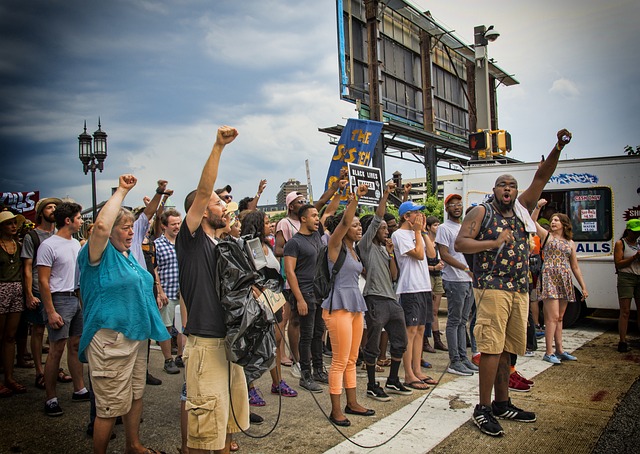
Civil disobedience is helping a lot of young people discover their voices in the world today, as headlines are dominated by concerns of justice, equality, and environmental stewardship. Taking part in demonstrations is a potent method to raise awareness of your concerns and push for change. But it’s crucial to approach these acts with consideration, readiness, and a dedication to nonviolent communication. This is your manual for successfully navigating civil protests:
- Become Informed: Make the effort to familiarize yourself with the topic at hand before participating in a demonstration. Recognize the context, history, and background of the cause you are supporting. Investigate several viewpoints to have a comprehensive grasp of the problem. Not only will this information guide your behavior, but it will also make it possible for you to have meaningful conversations with other people.
- Select Your Cause: Choose a cause that is in line with your principles and ideals. Make sure you have a sincere passion for the cause, whether you’re supporting racial justice, climate action, the removal of punitive taxes, or any other significant issue. Your dedication will help you overcome the difficulties of activism and give your involvement credibility.
- Be Aware of Your Rights: Learn about the rights you have when participating in protests. Recognize the rules and legislation that apply to protests in your community. Understand your rights to free speech and lawful assembly, as well as how to react to law enforcement or opposing demonstrators. Knowing your rights gives you the confidence and responsibility to participate.
- Make a Plan: Make sure you have a plan before you attend a demonstration. Tell someone you trust about your plans, including the time and place you anticipate to be there. Assemble the necessities, including water, food, a fully charged phone, identification, and any pertinent protest supplies (banners, signs, etc.). Wear comfortable footwear and dress according to the weather.
- Make Safety First: Your security need to be the first concern during demonstrations. Remain mindful of your surroundings and abstain from dangerous actions. Remain with a dependable companion group or other demonstrators. If you come across animosity or violence, get help and relocate to a safe area. Always heed the directions of the designated marshals and protest organizers.
- Show Others Respect: Even if someone else has a different viewpoint than you, still respect their rights and opinions. Behave civilly and politely with police officers, bystanders, and other protestors. Refrain from conflict and keep an optimistic outlook. Recall that the objective is to promote change and increase awareness through productive discourse.
- Engage Constructively: During protests, make effective use of your voice. Carry signs that convey your message clearly, chant slogans, and participate in nonviolent forms of protest. Observe the rules that the protest organizers have established governing the demonstration’s conduct and tone. Be ready to talk to members of the public or members of the media who might ask you why you are participating.
- Record and Disseminate: Keep a responsible journal of your experiences. Take images or movies that effectively convey the spirit of the demonstration, but be mindful of other people’s privacy and permission. To help spread awareness of the topic, post about your experiences on social media or in your neighborhood. Utilize hashtags or handles related to the demonstration to increase its visibility and significance.
- Think and Grow: Consider your experience after taking part in a protest for a while. Think on what worked well and what may be done better for subsequent initiatives. Talk about the effects of protests and the bigger picture of social change with mentors and peers. Gaining knowledge from every encounter improves your advocacy abilities.
- Remain Involved: Activism takes many forms, protests included. After the protest, continue to be involved in your cause. Participate in community meetings, volunteer, join groups, and back projects that lead to long-term change. Recall that significant improvement can only be attained via persistent advocacy and group efforts.
A Final Word
In conclusion, young people who are enthusiastic about social justice and constructive change may find that taking part in civil protests is a life-changing event. You may make a positive impact on a more just and equitable society by educating yourself, making smart plans, putting safety first, and participating positively. Your voice important; make sure it’s appropriately and honorably heard. If we work together, we can change things.




Hi friend.
To help us continue writing quality content for you on this website, please do the following:
1. Read the article and leave a comment.
2. Share the article on social media for your friends to benefit.
3. If you find it convenient, click on the advertisements that appear on the website. This will help generate revenue for this site.